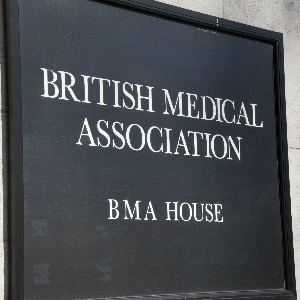A BMA poll has revealed over half of GP practices would consider temporarily suspending registration of new patients due to workload pressures, which will help inform whether they will ballot the profession on industrial action.
The survey drew responses from 1,870 GP practices in England, the BMA said, revealing that 54% would be willing to close lists to ’focus on delivering safe care to patients already on their practice list’.
In addition, 44% of practices said they would be in favour of applying for a formal and permanent list closure from NHS England.
Q&A: What does BMA list closure poll result mean in practice?
‘Politicians must take this survey as a serious warning’
The BMA said the next step would be to take the result and bring it into negotiations with Government about GP terms and conditions.
There are no immediate plans to ballot the profession on industrial action but ’all options are on the table’.
BMA GP Committee chair Dr Richard Vautrey said that the Government ’needs to understand that this landmark survey sounds a clear warning signal from GPs that cannot be ignored, and that the workload, recruitment and funding crisis in general practice must be addressed with far more vigour and commitment’.
He added that the result comes as GP practices ’believe the promises in the GP Forward View which pledged to provide more resources to frontline patient care have failed to make an impact’.
’The BMA is now calling on ministers to work with us to urgently to address this growing crisis which is threatening to overwhelm general practice. We cannot allow a situation where patient safety is being compromised by a lack of political action,’ he said.
The results
- 54% would consider temporarily suspending new patient registrations
- 44% would be in favour of applying for a formal and permanent list closure from NHS England
GPC survey of 1,870 GP practices in England
According to Dr Vautrey, ’the fact that even a single surgery has reached the point where it would consider a suspension of new patient registration or closing its patient list fully shows that government promises to rescue GP services have failed to materialise’.
He said: ’Despite the hard work of GPs, nurses and practice staff, many GP practices are struggling to cope with the rising number of patients coming through their doors because of a lack of necessary funding and widespread staff shortages.’
This comes as a third of GP practices have told the BMA they have had vacancies that have gone unfilled for 12 months and nine out of ten have said their workload is often unmanageable.
Many GP practices are struggling to cope
Dr Vautrey added: ’This is placing an intolerable pressure on local GP services, especially as they increasingly need to deliver intensive, specialist care in the community to the growing number of older patients with complex health conditions.
’In recent years some GP practices under considerable pressure have already taken the step of suspending their practice list in order to maintain patient safety.’
The BMA’s survey looked at whether funding, workload and staffing pressures meant they needed to consider suspending new patient registration in order to protect patient safety.
What happens next?
This survey represents a powerful snapshot of quite how the profession is feeling at the moment, but it puts the BMA in a difficult position.
Yes, a majority of GP practices would be willing to take the step of closing their lists en masse, but only a quarter of all GP practices in England responded to this GPC survey, so it does not quite give them the clear mandate that the union would need to proceed with a ballot on industrial action.
The GPC is keeping its cards close to its chest, saying that it will be taking this survey into negotiations about GP conditions and pay in England. Quite what negotiators expect to get from these negotiations, and what it wants in return for not calling a ballot on a co-ordinated list closure is unclear.
But it cannot ignore that many practices in England are very unhappy with their current situation and want to be able to take action; perhaps many will unilaterally close their lists anyway on the basis of the GPC advice they have already received.
A lot hinges on this next set of contract negotiations delivering real change.
Pulse July survey
Take our July 2025 survey to potentially win £1.000 worth of tokens





 Oviva’s fully remote Tier 3 Weight Management programme
Oviva’s fully remote Tier 3 Weight Management programme







